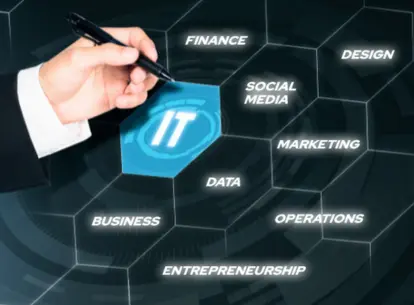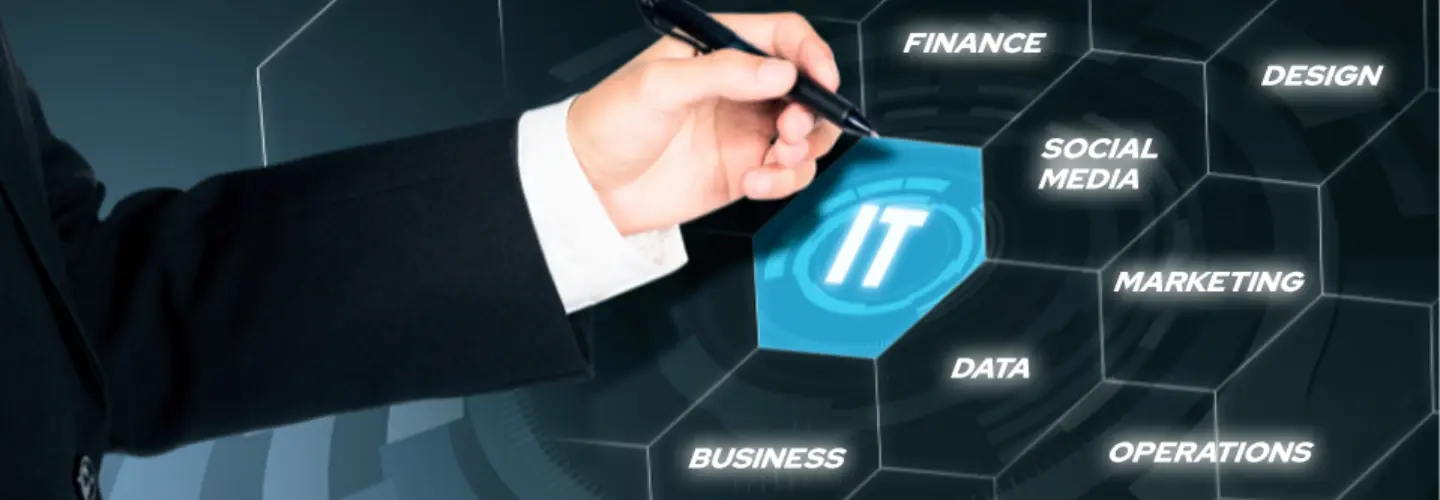A global digital report published in January 2024 states more than 66% of people around the globe use the internet. The Philippines alone accounts for 86.98 million internet users and has 117.4 million cellular mobile connections. Armed with a smartphone and reliable internet connection, one can do almost anything from book a car with a mobile phone or earn an online college degree from a reputable school in the comforts of home.
It is inevitable that society will adapt when technology advances. On the flip side, we turn to technology to find more ways to simplify and enhance our lives. We have already started to experience these changes in healthcare, governance and even more so in businesses that have digitally transformed and kept up with the latest trends in Information Technology (I.T.), which includes software development, data analytics, cybersecurity, marketing technology and entrepreneurship technology.
Evolution of I.T. is driving the growth of businesses
In 2009, Starbucks launched their mobile app entering the space of e-commerce and by 2011 they were offering in-app mobile payments and rolled out mobile pre-orders that allowed customers to skip the long lines. The company continued to innovate and leveraged on Artificial Intelligence (AI), a subset of Information Technology, to elevate customer experiences both in-store and online through their internal platform Deep Brew. This customized their customers’ drive-thru experience and automated inventory management, among other things, that gave them the edge to outperform their competitors.

In the Philippines, the use of digital and mobile payments soared with GCash, an e-wallet that offers hassle-free and cashless payments. They saw an opportunity in a market where most Filipinos remain unbanked but have access to a smartphone and internet connection. From purchasing goods in-store to shopping and paying bills online, GCash offered a solution that most Filipinos needed and pushed for financial inclusion. With the rapid growth of users, GCash partnered with Alibaba Cloud to scale up in the most efficient way possible and equipped themselves with several programs to amp up cybersecurity measures for data protection and speed up the verification process of new users. GCash has grown to become the top mobile e-wallet in the Philippines since its inception and has expanded its digital products to investments, loans and insurance services.
MMDC is bridging the gap in the tech job market

Advancements in various industries create new career opportunities and demand fresh skill sets from professionals in fields like IT support, e-commerce, social media marketing and customer relationship management. The IT-BPM Association of the Philippines reports that by 2028, the tech industry hopes to create 2.5 million new jobs in the country. However, the Philippines faces a shortage of 200,000 workers with I.T. skills and many companies struggle to find qualified candidates due to the lack of investment in technical education and training, insufficient opportunities to upskill and the high demand for I.T. professionals abroad.
Moreover, I.T. skills that can be applied to marketing and entrepreneurship are needed given the rapid digital transformations of businesses. An article published by Sandip University shares that I.T. is a powerful tool that can drive business management to new heights and help companies thrive in a constantly changing environment by streamlining operations, interpreting vast amounts of data for marketing and product development efforts and improving customer service with personalized experiences.
Professionals who can operate the latest softwares and programs and apply their new skills to help drive growth in businesses are needed now more than ever and schools such as Mapúa Malayan Digital College (MMDC) offers a fully online degree in Information Technology with specializations that are either development-focused and business-focused. Development-focused specializations include Software Development and Network and Cyber Security while business-focused specializations include Data Analytics, Marketing Technology and Entrepreneurship Technology.

These specializations will equip students with up-to-date skills and knowledge relevant to the current demands of the tech industry using MMDC’s Project, Problems, and Cases (PPC) method. More than theoretical learning, students are able to develop and apply critical thinking and problem solving skills in an actual workplace, which better prepares them for real-world scenarios. For example, students will learn how to operate softwares such as Salesforce, Canva, ZenDesk, and Shopify and apply their knowledge of these softwares to the specific and current needs and demands of their chosen company early on.
Working professionals who are looking to upskill are also given the opportunity to learn and level up while balancing other responsibilities with flexible learning. MMDC requires 7.5 hours a week of synchronous learning and students choose the most convenient time of day when they will attend their classes.
Academic institutions can provide the solution as I.T. continues to evolve, beyond hard coding skills, there are so many more applications of technology in businesses today. Access to online degrees, affordable tuition and high quality learning experiences will meet the demands of the job market and boost economic growth.
As new technology is rapidly changing the pace of our lives, we must adapt in order to move forward. What skills do you think are needed in the current I.T. job market that academic institutions can help address?
Start your MMDC journey at any term within the school year! Enroll for Term 2 starting December (Classes from January to April), Term 3 in March (Classes from May to July). For more information on MMDC’s programs, click here. Follow us on Facebook, Instagram and YouTube.


